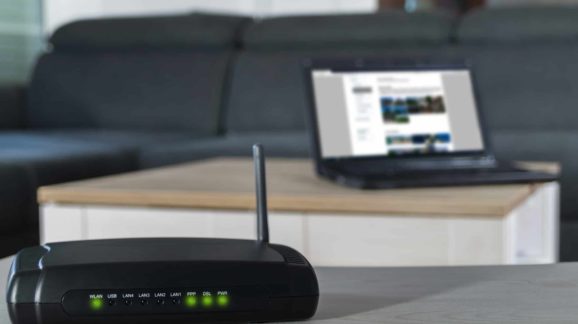Wi-Fi: A freedom and innovation success story

Photo Credit: Getty
There’s a been a lot of bad news on the regulatory front lately with the FCC darkening broadband’s success with burdensome regulation. But let’s celebrate an innovation success story that is based on freedom and openness – Wi-Fi.
In 1985, the FCC tried something it had not done before. It opened three spectrum bands for unlicensed use, allowing anyone who followed the rules to use them. So little was thought of these spectrum bands that they were considered “junk bands.” But out of those junk bands emerged many productive uses, including Wi-Fi.
Wi-Fi is an unparalleled technological and economic success. While exclusive use licensed spectrum forms the core of our mobile networks and is important for communications technologies, Wi-Fi uses portions of unlicensed spectrum that anyone can use on a non-exclusive basis; these unlicensed spectrum portions are public and free. They are also decentralized – there are no license payments or centralized control for users (Wi-Fi devices are subject to FCC certification and certain technical requirements).
This free and open construct has allowed Wi-Fi, and therefore broadband, to proliferate. Coffee shops, hotels, airports, hospitals, libraries, and countless other locations routinely offer Wi-Fi. And Wi-Fi has transformed how teachers and students communicate, allowing them to safely share homework, documents, and files over a school’s network. Wi-Fi is an incredible educational productivity tool.
Wi-Fi has been so successful that Americans’ Wi-Fi usage now surpasses the use of exclusive use licensed spectrum. According to The Internet and Television Association, 53% of all US internet traffic is delivered over Wi-Fi, and Wi-Fi carries more traffic than all exclusive use licensed spectrum bands combined. The Wi-Fi advocacy group Wi-Fi Forward states that Wi-Fi “boosted the U.S. economy by $995 billion in 2021.”
Wi-Fi has also increased wireless competition. Cable companies are now important competitors for mobile service, and Wi-Fi has allowed them to adopt a model in which they are mobile virtual network operators (MVNOs) who use the underlying mobile network of another provider for mobile service, while at the same time using Wi-Fi to offload wireless broadband traffic onto their own networks. More than 80% of cable operators’ mobile data traffic is offloaded to Wi-Fi networks. Wi-Fi has made the MVNO model more economical and allowed cable companies to effectively compete with other mobile providers, increasing consumer choice and providing an enhanced broadband experience.
All of this success can be attributed to Wi-Fi’s free and open construct that has allowed monumental innovation to occur. It all adds up to making consumers and the US economy big winners.
And from a broader perspective on ensuring that more spectrum is in the marketplace, Congress needs to renew the FCC’s auction authority. That authority recently lapsed for the first time in 30 years, so Congress should act quickly.
The FCC should learn from the Wi-Fi experience. It’s free and open to anyone nature has allowed Wi-Fi to grow, innovation to occur and consumers to benefit.
Freedom and openness are always good starting points.